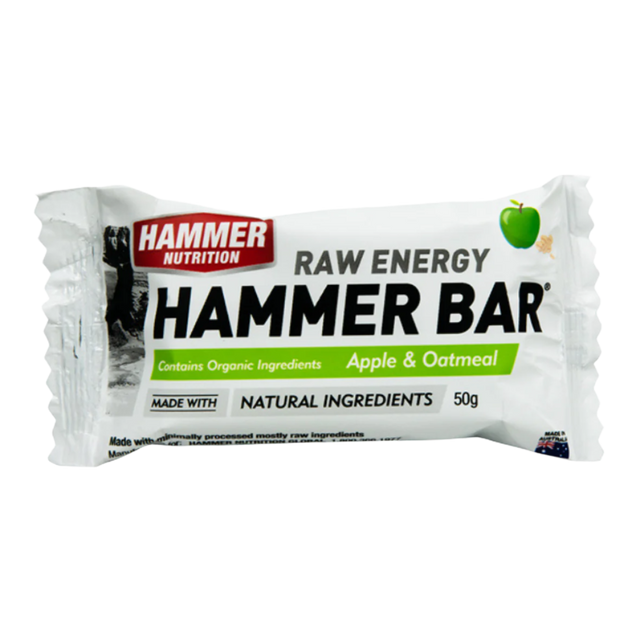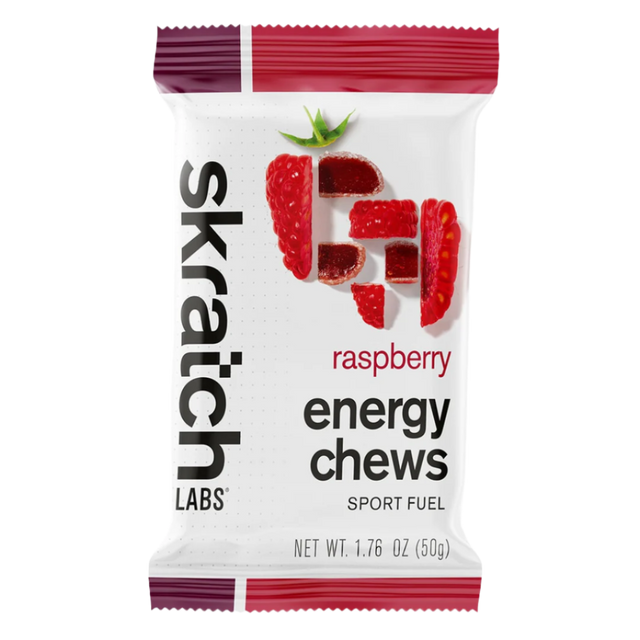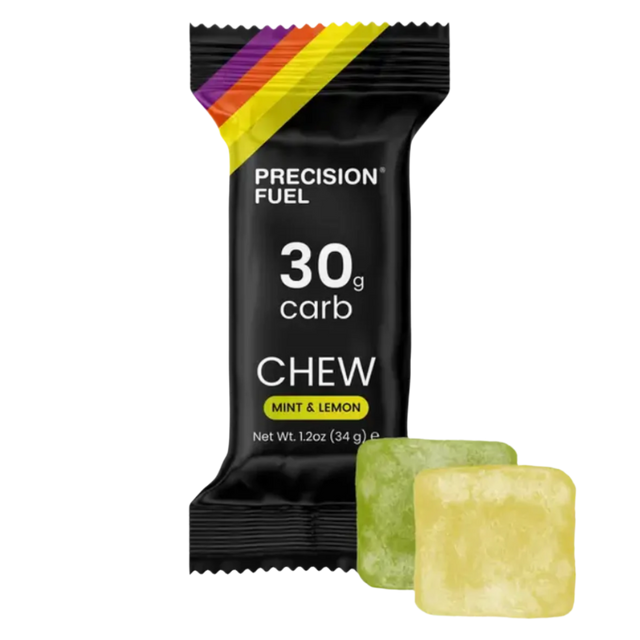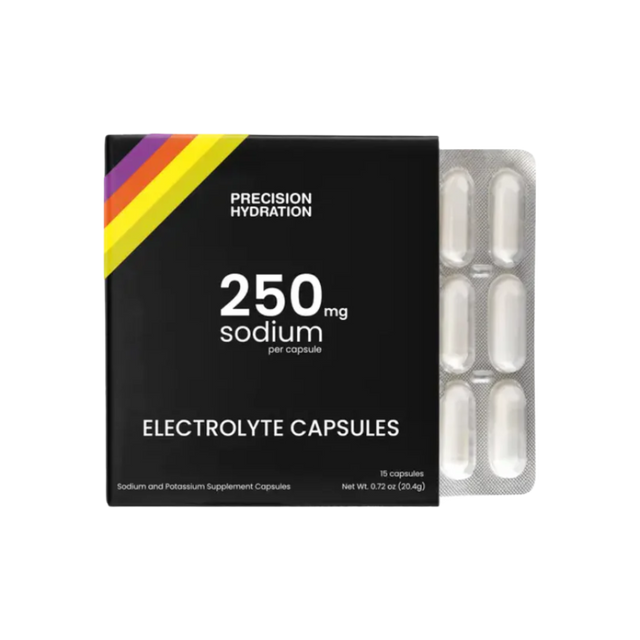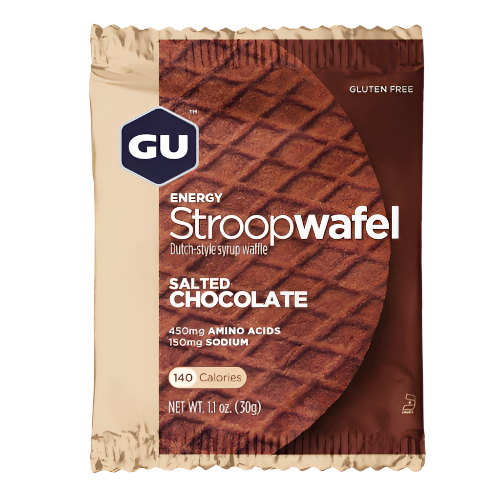Marathon Fuelling 101
Running has quickly become the era-defining sport of 2025. No wonder - it's easy to pack a pair of shoes and an outfit wherever you go, it's time-efficient, and races are inexpensive compared to multisport events. Runna has made achieving all run distances even easier with online tailored running plans from 5km to marathon distances.
Since 'Run a marathon' has become a prevalent item on many bucket lists in 2025, let's focus on marathon fuelling.
Training / Race Day
First off lets look at energy and hydration in training and on race day. As a guide you should be looking to consume somewhere between 60-120g of carbohydrates per hour for events lasting over 2 hours. Which applies to all marathon runners except Eliud Kipchoge. This could look like consuming 2-6 gels per hour. 1 gel every 10-30 mins depending on which gel you chose and your target carbohydrates per hour. You would also be getting subsequent carbohydrates if you were consuming a drink mix.
Be sure to choose your energy and hydration products wisely as some people are intolerant to the carbohydrates, fructose and maltodextrin which are found in a lot of sports nutrition products. Don't leave the guessing for race day - start training with your nutrition asap. Have a read of the article ‘Which gel should I choose? Or send your question to me through the ‘Ask Ash’ page.
Chews and bars are also a great option for those who don’t like consuming gels or liquid nutrition. Some great options are Em's Power Cookies - Protein Cookie, Hammer Nutrition - Energy Bars, Skratch Labs - Energy chews, Bonk Breaker - Energy Chews, Precision Fuel & Hydration - PF 30 Chew, or Clif Bloks.
Hydration during training and racing is equally, if not more important, than keeping your energy levels up. Dehydration can decrease aerobic power by 6% which will slow you down a lot faster than a lack of energy will (1). It is recommended we take on some form of electrolytes during long training sessions and during a marathon. This can be achieved by consuming the on course hydration or having a hydration mix prepared in your run belt or vest. Another option is to carry salt or electrolyte capsules in a ziplock bag. When you are coming into an aid station have a tablet then a big skull of water from the aid station. This way you are getting your electrolytes and water intake. This is helpful if the on course hydration does not sit well with you.
Race Week
I have written a whole article on race week nutrition here, but let's refresh the important stuff.
Slowly Increase Carbohydrates
Our training load decreases in taper week, therefore we naturally increase our glycogen uptake if we continue to eat the same amount of food. The last 3-4 days before race day we want to slightly increase our carbohydrate intake. The recommendations for carbohydrate intake leading into endurance events should be different for males and females
Females don’t respond to carbohydrate loading as well as males. Two consecutive studies have shown that men may be able to increase their muscle glycogen concentration by 23-41% while women may not be able to increase their storage at all, best case a potential increase of 17% (2,3).
Therefore females should only slightly increase their carbohydrate intake a few days before race day, males can be slightly more aggressive.
If you need help with how to taper off training during race week, reach out to Runna coaches here.
Reduce Fibre
Due to fibre's fermentation process in the gut, it often has a by-product of gas. Gas, fullness, large bowel movements are something we want to avoid on race day to help prevent unwanted toilet stops.
Usually on a day to day basis it is recommended we consume 20-25g of fibre per day (4). During race week I recommend my athletes consume less than 10g per day.
Snacks that are low in fibre but high in carbohydrates are; Em's Power Cookies - Power Bites, Clif Bar - Nut Butter Bar, Styrkr - Rice bars, GU Energy - Stroopwafels.
Increase Available Hydration
Plain water isn’t actually hydrating. We need a combination of sodium and water to hydrate the body. Be sure to have a water bottle on hand at all times during race week with a solution that contains water and electrolytes. This can be easily made by adding an electrolyte tablet or powder to your water bottle such as Hammer Nutrition - Endurolytes Fizz, Science In Sport (SIS) - Go Hydro Tablets, Koda - Electrolyte Powder Sticks or Huma Gel - Hydration Drink Mix.
Read more on race week nutrition here
Race Morning
I have also written a whole article on what to eat the morning of an endurance event which you can read more about here. On race morning we want to have our main meal 2-3 hours before the race to boost blood sugar levels but allow time for digestion. Remember this should be low in fibre, have some simple carbohydrates and protein. This could look like; A bagel with cottage cheese and maple syrup, oats and yoghurt, banana and peanut butter or Radix Nutrition - Low FODMAP Breakfast - Banana.
20 minutes before the race take on your pre-race carbohydrates. This is usually a gel, chews or a bar. It takes 20 minutes for a food to be absorbed into the bloodstream and therefore if timed right you should get a boost in blood glucose levels right at the start time.
Post Race
The best post race food is going to vary due to the differences in physiologies. Males use more muscle glycogen (stored carbohydrates) during exercise and females use more fats during aerobic exercise.
The International Society of Sports Nutrition recommends males eat within 0.6 grams to 1 gram of carbohydrates for every kilogram of body weight as close to finishing exercise as possible (5). In addition to getting good quality carbohydrates you also want to supplement this with about 25-35g of good quality protein. An example of this could be;
Radix Nutrition - Recovery Smoothie V2 Sachet | Whey Based
+ 2 cups of coconut water
+ 1 banana
+ 1/3 cup of granola
+ 4 pitted dates
[ 740 Cal. 40g Pro. 14g Fat. 113g carbohydrates]
*For females we want to have around 60-100g of carbohydrates, 15-20g of fat and 30-40g of protein straight after finishing exercise. This will help replace glycogen and fat stores in your muscles, increase protein synthesis, reduce cortisol levels and regulate hormone synthesis which prevents long term catabolic state and menstrual disturbances (6,7,8). An example of this could be;
1 cup of oats with water or milk
+ 1 sachet Radix Nutrition - Whey Protein DIAAS Complex™ 1.61
+ 1.5 Tbsp of 100% nut butter
+ 1/2 cup of berries
[ 590 Cal. 42g Pro. 16g Fat. 69g carbohydrates]
Read more about post exercise nutrition here.
Ash Miller
Dietitian and Nutritionist (Masters)
Bachelor of Physical and Health Education
Instagram: @ashthomo_nutrition
Disclaimer:
The content in this blog is for general information only and is not a substitute for professional medical advice, diagnosis, or treatment. Always speak with your doctor or allied health team before changing your diet, exercise, or taking supplements, especially if you have a health condition or take medication. Please use this information as a guide only. Aid Station doesn't take responsibility for individual outcomes.
References:
1. Fleming, J., and L.J. James (2014). Repeated familiarisation with hypohydration attenuates the performance decrement caused by hypohydration during treadmill running. Appl. Physiol. Nutr. Metab. 39:124-129.
2. Tarnopolsky MA, Zawada C, Richmond LB, Carter S, Shearer J, Graham T, Phillips SM. Gender differences in carbohydrate loading are related to energy intake. J Appl Physiol (1985). 2001 Jul;91(1):225-30. doi: 10.1152/jappl.2001.91.1.225. PMID: 11408434.
3. Tarnopolsky MA. Gender differences in metabolism; nutrition and supplements. J Sci Med Sport. 2000 Sep;3(3):287-98. doi: 10.1016/s1440-2440(00)80038-9. PMID: 11101268.
4. Barber TM, Kabisch S, Pfeiffer AFH, Weickert MO. The Health Benefits of Dietary Fibre. Nutrients. 2020 Oct 21;12(10):3209. doi: 10.3390/nu12103209. PMID: 33096647; PMCID: PMC7589116.
5. Kerksick CM, Arent S, Schoenfeld BJ, et al. International Society of Sports Nutrition position stand: Nutrient timing. J Int Soc Sports Nutr. 2017;14:33. doi:10.1186/s12970-017-0189-4
6. Michaela C. Devries, Mazen J. Hamadeh, Stuart M. Phillips, and Mark A. Tarnopolsky. Menstrual cycle phase and sex influence muscle glycogen utilization and glucose turnover during moderate-intensity endurance exercise. 291, R1120-1128 (2006).
7. Roy, B. et al. “The influence of post-exercise macronutrient intake on energy balance and protein metabolism in active females participating in endurance training.” International journal of sport nutrition and exercise metabolism 12 2 (2002): 172-88.
8. Jäger, R., Kerksick, C.M., Campbell, B.I. et al. International Society of Sports Nutrition Position Stand: protein and exercise. J Int Soc Sports Nutr 14, 20 (2017). https://doi.org/10.1186/s12970-017-0177-8

